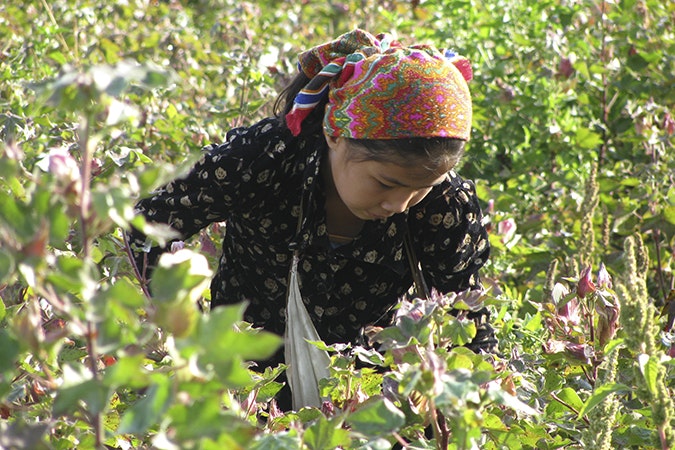A Warning for Retailers: Purchase Uzbek Cotton and Risk Your Reputation
By Alisher Ilkhamov

Uzbekistan is the only country in the world where children are forced, by order of the government, to harvest cotton. Every fall, schools and public offices are shut down for a month and schoolchildren, teachers, and public servants are forced into the fields. Over a million children are affected, yet retailers around the world continue to purchase cotton picked under conditions akin to Stalin-era labor camps, bringing the government over one billion dollars in annual revenue.
The recently released paper, “From the Field: Travels of Uzbek Cotton Through the Value Chain,” authored by Valentina Gurney, Patricia Jurewicz, and Alina Shlyapochnik of the Responsible Sourcing Network, an Open Society Foundations grantee, presents retailers with information on the production and nature of Uzbek cotton. “From the Field” discusses all the channels that cotton typically travels through before it is exported from Uzbekistan, the buyer’s risk of exposure to forced child labor associated with Uzbek cotton, and actions that can be taken to drive forced child labor out of the fields. A second paper, “To the Spinner,” slated to be released later in 2012, will take an in-depth look at the industries of cotton trading and spinning.
Though child labor in cotton production remains endemic in many countries, nowhere it is more organized than in Uzbekistan. The authors recommend that brands and retailers carrying cotton products should minimize their exposure to Uzbek cotton, noting that it carries both social and environmental risks that can seriously damage a company’s reputation. The author outline a number of steps to help retailers bring about change for Uzbek children, raise awareness of this problem, support the public statement and engage in industry and multi-stakeholder initiatives.
Brands should raise internal awareness and make a publically declare that forced child labor in its value chain is unacceptable and that it will not knowingly source Uzbek cotton until the International Labour Organization is able to verify children are no longer forced to work in the fields.
Brands should align their business practices with this commitment, begin to collect and track country-of-origin documentation for all cotton products, encourage action by industry associations, and participate in multi-stakeholder efforts to engage the Uzbek government and textiles manufacturers to ensure that the government does not rely on forced labor in its production targets.
These steps can help retailers protect their brands, and, more importantly, help put an end to child labor in Uzebek’s cotton fields.
Until November 2021, Alisher Ilkhamov was a program officer with the Open Society Eurasia Program.